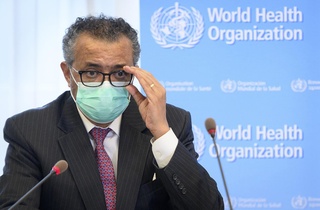“Now into the fourth year of the pandemic, the world is in a much better place than it was several years ago, due to clinical care management, vaccines, and treatments,” Tedros said in a press briefing.
Tedros underlined that vaccination increased across the world, and there was sustained progress in many low- and middle-income countries that had been left far behind in 2021 due to vaccine nationalism and manufacturing capacity being restricted to just a handful of countries.
“But despite clear progress, the threat of COVID-19 persists. There are still major inequities in access to testing, treatment, and vaccination and ultimately COVID-19 remains a dangerous virus to our health, economies, and societies overall,” Tedros warned, noting that every week, approximately ten thousand people die of COVID-19.
“We are really concerned about the current COVID-19 epidemiological picture, with both intense transmission in several parts of the world and a recombinant sub-variant spreading quickly. In recent weeks, there has been increasing reports of hospitalization and health system pressure, particularly in temperate regions of the northern hemisphere where respiratory diseases including flu are also circulating,” he added. (ILKHA)



 Dünya
Dünya
 Dünya
Dünya
 Güncel
Güncel
 Güncel
Güncel
 Dünya
Dünya
 Dünya
Dünya
 Dünya
Dünya
 Dünya
Dünya
 Dünya
Dünya
 Dünya
Dünya





